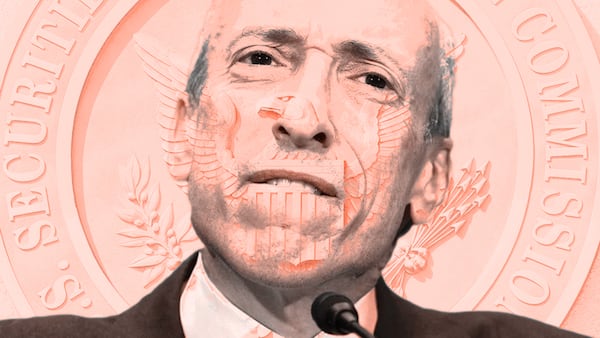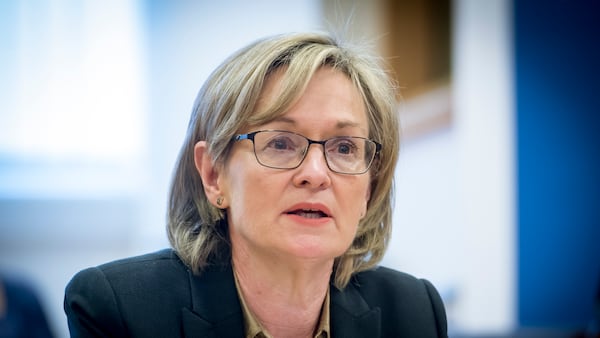The crypto community’s reaction to a new European Union regulation has been largely positive, DL News has found.
By contrast, our regulation correspondent Joanna Wright said email traffic and comments on Twitter reveal anxiety about what might happen in the United States.
“It shows how eager crypto is to be able to play on a clearly demarcated field,” she said.
Joanna referred to the Markets in Crypto-Assets Regulation, which was approved by the EU parliament in a vote on Thursday, April 20. Only 38 parliamentarians voted against the bill, with 517 voting to approve it.
NOW READ: Why EU is ‘ahead of other jurisdictions’ on crypto as MiCA set to kick in
MiCA will impose transparency, disclosure and supervision requirements on crypto platforms, token issuers and traders. The EU’s 27 member states have 18 months to incorporate the new rules into national law.
‘It’s not going to be a picnic.’
— Joanna Wright
“It’s not going to be a picnic to comply with, so I was surprised that a lot of the reaction was so positive,” Joanna said.
But, she added, “people are looking at the US where the wrath of Gary Gensler could come down on you at any time. Rather than be crushed they’d prefer to have it laid out in front of them.”
Gensler, the chair of the US Securities and Exchange Commission, is famously hostile to crypto.
“I’ve never seen a field that’s so non-compliant with laws written by Congress,” he told the Financial Services Committee of the US House of Representatives last week.
NOW READ: ‘Not a warm and fuzzy guy:’ Gary Gensler’s past sheds light on his firm stance on crypto
Joanna noted that “for all its complexities, MiCA is intended to open up the market to crypto service providers and stablecoin operators.”
People particularly welcomed what she called its passporting features — “the fact that if you just establish yourself in one country, you can operate in all 27.”
But “many people are worried about a chasm opening up between Europe and the US” if the American authorities adopt different rules, she said.
‘MiCA is so welcome because it harmonises right across the EU.’
— Joanna Wright
“It is very expensive to operate globally when you have to comply with a lot of different regulations and jurisdictions — you always want harmony.
“MiCA is so welcome because it harmonises right across the EU, it has a passporting regime, and a lot of policy makers across the world are seeing it as a sort of template that they can apply in their own countries.”
Among those who applauded the adoption of MiCA was Bradley Duke, joint chief of the ETC Group, who said “it encourages growth, innovation and job creation” and should make the EU “the world’s digital assets group”.
Andrew Whitworth, policy director EMEA at Ripple, described the EU’s MiCA vote as “an important milestone for the crypto industry around the world”, while Hirander Misra, chair of GMEX Group, said it would make it “easier for firms to operate” and would broaden the potential customer base.
Such comments were typical of the many e-mails Joanna has received.
NOW READ: Europe’s MiCA offers crypto utopia for Americans in a banking crisis. But it’s not that simple
Stateside lawmakers attempt to close the regulatory chasm between the EU and the US.
The US House of Representatives’ Financial Services Committee introduced a bill last week to regulate stablecoins. It has the support of the Republican majority in the House, but Joanna thinks it will take much longer to bring in broader legislation.
“A lot of political will drained out of Washington after the collapse of FTX,” she said.
“Sam Bankman-Fried was a prolific lobbyist and there is a lot of resentment among lawmakers on both sides of the aisle who feel embarrassed by the failure of FTX.”
Bankman-Fried is the founder and former CEO of disgraced crypto exchange FTX that imploded in November. Prosecutors have charged Bankman-Fried with a dozen criminal counts, including securities fraud, money laundering and campaign finance violations since the crash. He has pleaded not guilty to several charges.
Crypto company collapses are not the only roadblock standing in the way of new laws — the wheels of democracy itself is another.
“Next year is an election year and that tends to distract focus from legislating,” Joanna said.
The outcome of the election will also influence the future of crypto legislation.
“Very crudely, we are starting to see it shaping up as Republicans being pro regulation and Democrats anti, although there are inconsistencies and exceptions on both sides.”
She thinks that “a Republican administration would be much friendlier but if Biden is re-elected it will take a lot longer.”
‘MiCA stemmed from worries about stablecoins.’
— Joanna Wright
For Joanna, a bigger question is whether regulatory authorities will extend their reach beyond crypto to decentralised finance in general.
“MiCA stemmed from worries about stablecoins,” she said. “You can see that in the way it’s drafted — it is very stablecoin heavy.”
NOW READ: Europe’s MiCA crypto law green-lighted in aim to end ‘Wild West’
DeFi is another matter, however. “It’s misunderstood by policy makers. They understand what’s going on with stablecoins and crypto but DeFi continues to elude them,” Joanna said.
“That will be the next frontier. We have seen the Financial Stability Board almost come out against it.”
The FSB, she said, is concerned about the increasing links between DeFi and the real economy and finance.
In Joanna’s view, the collapse of FTX “wasn’t a big deal for the real economy” like the failure of the American investment bank Lehman Brothers in 2008 which precipitated a global financial crisis.
“The FSB is worried that DeFi is going to become that,” Joanna said. “That it is going to become some point of systemic importance with widening implication.”
While proposals are already being considered to update MiCA to include some regulation of DeFI, she does not foresee immediate action.
“The FSB has been looking at MiCA as a way to draw up recommendations and those will be followed by the G20 nations. It will take years,” she said.





